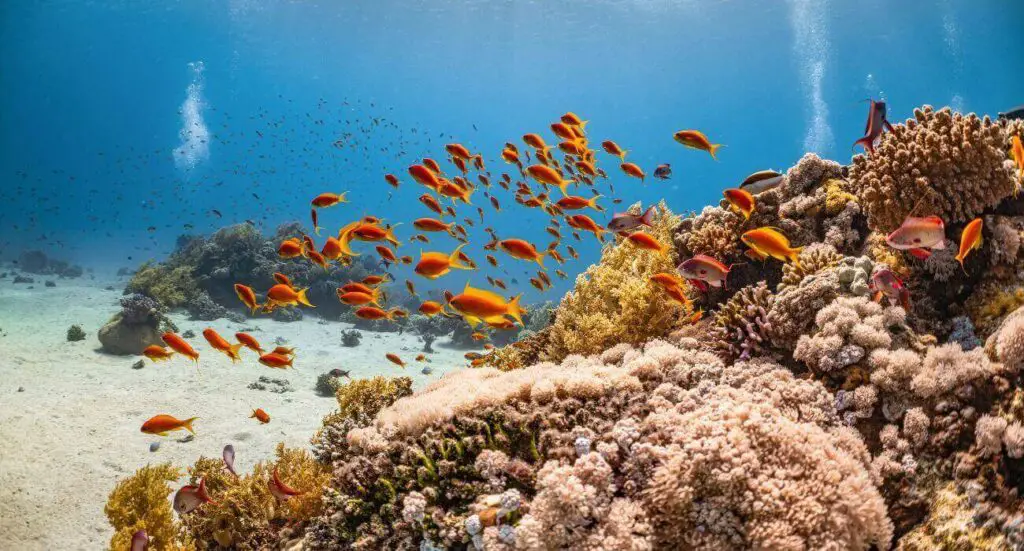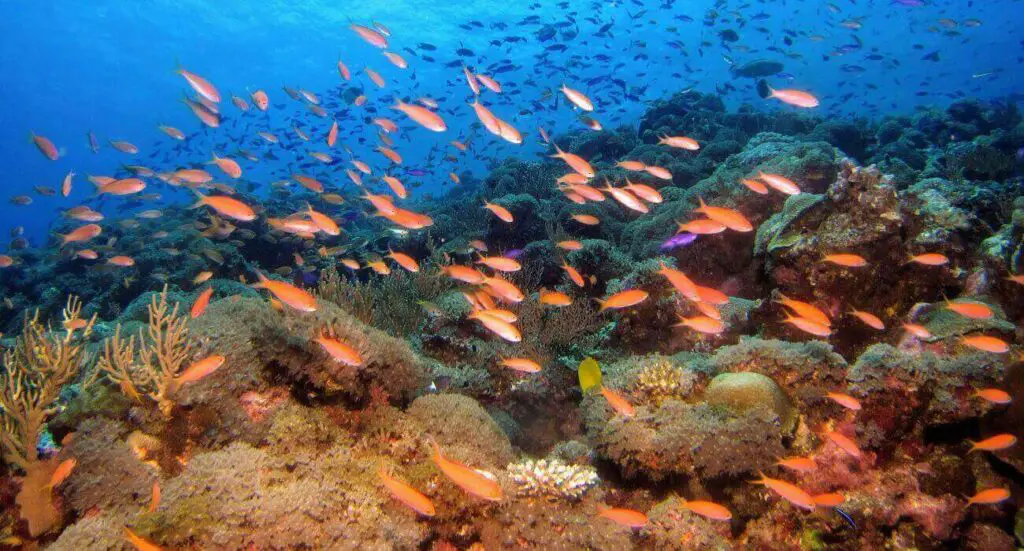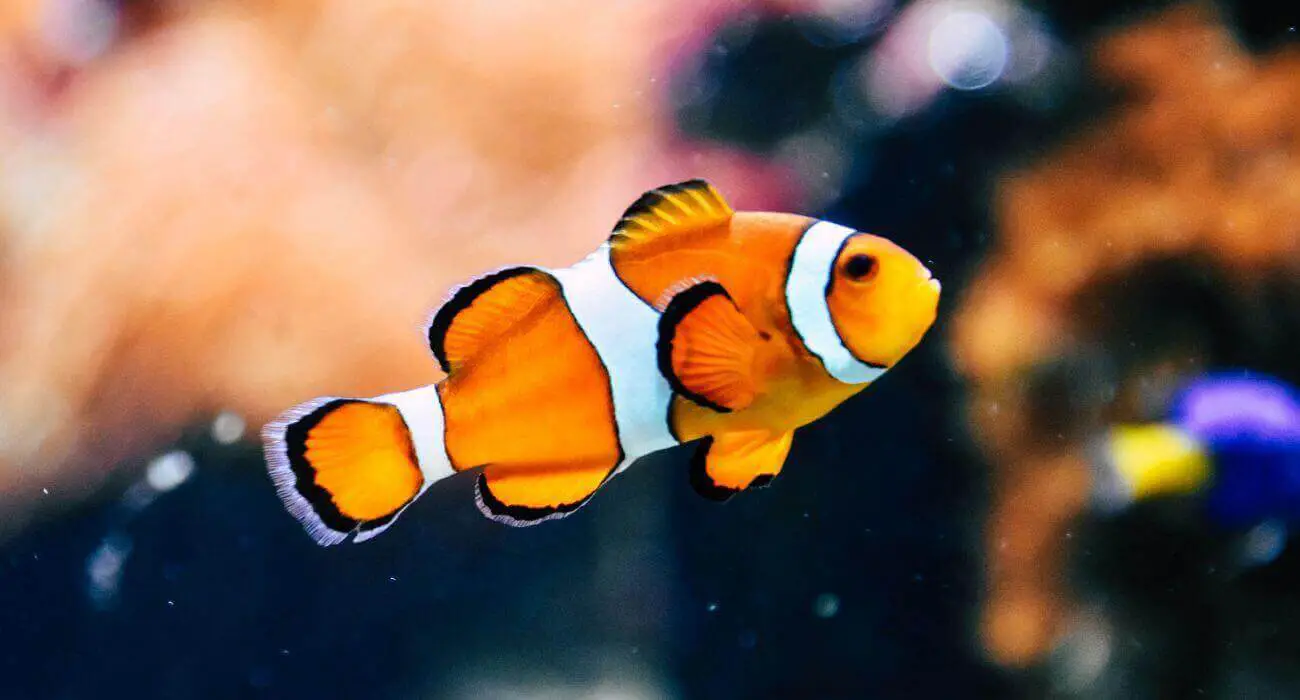As an Amazon Associate, I earn from qualifying purchases
Fish do not have periods like mammals; they reproduce through a process called spawning. Most fish release eggs and sperm into the water for external fertilization.
Understanding the reproductive processes in fish is fascinating and differs significantly from mammals. Unlike female humans and some other mammals, female fish are not subject to a regular menstrual cycle that involves shedding the lining of the uterus. Instead, many fish species engage in spawning, where they release eggs into the water to be fertilized externally by male sperm.
This method of procreation is efficient in aquatic environments, allowing for the potential fertilization of a large number of eggs. The way fish reproduce plays a crucial role in maintaining their populations and contributes to the biodiversity of marine ecosystems. Insight into the reproductive habits of fish is essential for fisheries management and conservation efforts.
Diving Into Aquatic Reproduction
The underwater world is full of mysteries, and one such enigma is how fish reproduce. Unlike mammals, fish have different methods to ensure the survival of their species. Let’s explore the fascinating world of aquatic reproduction and understand if fish have periods similar to other creatures.
The Fertility Cycle In Fish
Fish don’t experience periods like mammals do. Instead, they have their own unique fertility cycles. The process is called spawning, where they release eggs and sperm into the water. This can happen seasonally or more frequently, depending on the species.
- Internal fertilization happens in some species, where eggs are fertilized inside the female.
- External fertilization is common, with eggs fertilized in the water.
Variations Across Species
| Species | Reproduction Method | Spawning Frequency |
|---|---|---|
| Salmon | External | Once a year |
| Guppies | Internal | Every month |
| Sharks | Internal | Varies widely |
Among the vast species, some lay eggs while others bear live young. Furthermore, certain fish can reproduce without a mate, a phenomenon known as parthenogenesis. These remarkable differences illustrate the complexity and diversity of reproductive strategies in the aquatic realm.
Myths And Realities
The mysterious world of marine life often leaves us pondering about their life processes. ‘Do fish have periods?’ This question may seem simple, yet it’s surrounded by various myths and realities. It’s time to dive into the depths of common misconceptions and scientific clarifications to understand the reproductive cycles of fish.
Common Misconceptions
Many believe that fish, like humans and other mammals, experience menstrual cycles. This belief is not accurate. While it is true that fish reproduce, their cycle is quite different.
- Fish bleed monthly: Unlike mammals, fish do not have a monthly bleeding cycle.
- All fish are similar: Fish vary wildly in their reproductive methods.
- Menstruation means fertility: In fish, fertility doesn’t equate to menstruation.
Scientific Clarifications
Fish do not menstruate like mammals. They have their unique reproductive methods. Let’s set the facts straight with scientific clarity:
| Aspect | Reality |
|---|---|
| Reproductive Cycle | Most fish release eggs into the water, which are then fertilized externally. |
| Bleeding | Fish do not bleed as part of their reproductive cycle. |
| Spawning Season | This is the period when fish release eggs, which is their equivalent to a reproductive cycle but not a period. |
Fish exhibit a wide array of reproductive strategies differing from species to species. Understanding these unique patterns highlights the fascinating diversity of life in our oceans.
The Physiology Of Fish
When we dive into the underwater world, the physiology of fish fascinates us. Unlike mammals, fish have unique reproductive systems. Let’s explore how these aquatic creatures reproduce without the menstrual cycles we see in humans.
Understanding The Reproductive Organs
Fish come in many varieties with different reproductive strategies. They have organs designed for their aquatic life. Male and female fish have gonads, known as testes and ovaries.
- Testes produce sperm in males.
- Ovaries are for egg production in females.
These organs are key to how fish continue their species in the water.
How Fish Produce Eggs
The way fish produce eggs is quite remarkable. Unlike mammals, fish release eggs directly into the water. This process is called spawning.
- The female prepares eggs inside her body.
- Upon maturity, she releases them into the water.
- The male then fertilizes these eggs with his sperm.
Spawning can occur in various ways, depending on the species of fish. Egg production and release are crucial for the survival of fish populations.
In essence, while fish don’t experience periods like mammals, their reproductive organs and egg production are vital for their life cycle. Understanding their physiology helps us appreciate the diversity of life under the sea.

Menstruation In Mammals Vs. Fish
Menstruation in Mammals vs. Fish: An Intriguing Biological Tale
Understanding reproductive systems can be fascinating. Mammals and fish, indeed, live in different environments. More differences lie in how they reproduce. Let’s dive into the world of menstruation in mammals versus the reproductive processes in fish.
Menstruation In Mammals Explained
Menstruation marks a unique feature of mammalian reproduction. This natural cycle is the body’s way of preparing for potential pregnancy. It happens when the uterus sheds its lining if there’s no fertilized egg to develop.
- Occurs monthly in many mammalian species
- Typically associated with species with extended gestation times
- Hormones like estrogen and progesterone play key roles
- Visible signs of bleeding in species like humans and some primates
Contrasting Fish Reproductive Processes
However, fish do things differently. There’s no menstruation in the fish world. They follow a process called spawning. During spawning, fish release eggs and sperm into the water to combine.
Fish reproduction entails:
| Process | Characteristic |
|---|---|
| Spawning | Eggs and sperm released into water |
| External fertilization | Fusion of egg and sperm occurs outside the fish’s body |
| Lack of menstrual cycle | No regular shedding of the reproductive tract lining |
With no need for a uterus to nurture embryos, fish bypass the menstrual process. This efficiency suits their aquatic lifestyle perfectly. Understanding these differences enriches our appreciation for the diversity of life.
Shedding Scales On Popular Beliefs
Welcome to a diving deep into the aquatic world of fish! Many odd tales and myths surround these gilled creatures. One such story we often hear is that fish, like humans, have periods. Today, let’s untangle fact from fiction and explore this fascinating topic.
Periods In Humans And Other Animals
Periods or menstruation are a part of many land mammals’ reproductive cycles, including humans. This monthly process is a sign of fertility and preparation for potential pregnancy. The reproductive cycles of different animals come with various symptoms and durations.
- Humans: 28-day cycle, shedding of the uterine lining
- Apes: Similar to humans but with less noticeable bleeding
- Some bats and rodents: Also experience menstruation
Why Fish Don’t Experience Menstruation
Fish reproduction is a world apart from land mammals. They do not have periods because their mating process differs. Instead of shedding uterine lining, fish release eggs directly into the water, where fertilization takes place externally. Fish often breed via a process called spawning.
| Fish Reproduction | Human Reproduction |
|---|---|
| External fertilization | Internal fertilization |
| No menstrual cycle | Monthly menstrual cycle |
| Spawning of eggs | Ovulation and potential pregnancy |
Spawning: The Fish Equivalent
Discussing fish periods might summon images of aquatic menstruation. Surprisingly, fish do not experience periods in the human sense. Rather, they participate in a process known as spawning. It’s their way of reproduction and ensures the continuation of their species.
The Spawning Cycle
Unlike mammals, fish do not have a menstrual cycle. Instead, they have a spawning cycle. During this time, female fish release their eggs into the water. These eggs await fertilization by the male’s sperm.
- Spawning can happen seasonally or more frequently
- Environmental factors like water temperature and day length trigger spawning
- Mature fish engage in elaborate courtship behaviors
External Fertilization In Fish
Fish usually practice external fertilization. This is a pivotal difference from the internal method seen in mammals. Here’s how it occurs:
- Females release their mature eggs into the water
- Males dispense their sperm into the same area
- Fertilization happens outside the bodies
This method relies heavily on timing and the environment. Multiple factors must align perfectly for the spawn to develop into fish.
Environmental Influence On Fish Reproduction
Environmental influences play a crucial role in the reproductive cycles of fish. Unlike mammals, fish do not experience menstrual cycles. Their reproduction is closely tied to their habitat conditions. Let’s explore how the environment affects when and how fish reproduce.
Seasonal Reproduction Patterns
Fish reproduction often follows a seasonal pattern. This timing ensures the highest survival rate for their offspring. Many fish species spawn during specific seasons. The availability of food and optimal conditions for juvenile development determine these periods. For example, some fish might spawn in spring, whereas others wait for autumn.
- Spring Spawners: Improved food availability and warmer waters.
- Summer Spawners: Long daylight hours and abundant plant growth.
- Autumn Spawners: Preparing offspring for overwintering.
- Winter Spawners: Less competition for resource-laden habitats.
The Impact Of Water Temperature
Water temperature is a critical factor in fish reproduction. Most fish species have a specific temperature range ideal for spawning. If the water is too cold or too hot, it can affect the development of fish eggs and the survival of young fry.
| Fish Species | Ideal Temperature Range (°C) | Effect of Temperature Outside Range |
|---|---|---|
| Trout | 9-14 | Reduced Egg Viability |
| Bass | 15-20 | Delayed Spawning |
| Salmon | 7-14 | Impaired Embryo Development |
Changes in temperature can influence the maturation of gonads and trigger spawning. Fish rely on stable temperatures for successful mating. Sudden shifts in temperature due to climate change or other factors can disrupt this delicate balance.

Modern Research And Findings
The mystery of fish reproduction has long intrigued scientists.
Unlike mammals, fish do not experience periods in the way humans do.
Instead, they have their unique reproductive processes.
Modern research sheds light on these processes.
It hints at the intricate workings of aquatic life.
Contemporary Studies On Fish Reproduction
Recent studies provide insights into fish reproduction.
Scientists use advanced technology to observe fish in their natural habitats.
Some fish release eggs into the water, while others carry them until hatching.
The timing and methods of reproduction vary widely across species.
- Observational studies record breeding behaviors.
- Genetic testing explains traits passed to offspring.
- Environmental impact research studies reproduction changes.
Together, these studies contribute to a greater understanding of fish biology.
They also help in the conversation of diverse marine species.
Advancements In Aquatic Biology
In aquatic biology, advancements have been remarkable.
They have improved our knowledge of fish reproduction.
| Technology | Use in Study |
|---|---|
| High-Resolution Imaging | Visualizes internal structures |
| Genomic Sequencing | Determines lineage and genetic markers |
| Environmental Sensors | Monitors breeding grounds |
These tools have detected subtle changes in fish populations.
- Sensors track water temperature and quality.
- Imaging systems study egg development.
- DNA analysis reveals adaptation patterns.
Such advancements help protect fish and their ecosystems.
They support the balance of marine life.
Conservation And Reproduction
Understanding fish reproductive habits can puzzle even seasoned aquarists and marine biologists. Unlike mammals, fish don’t have periods as humans do. However, they have unique reproductive cycles essential for species survival. Keeping fish populations sustainable takes more than just a cursory knowledge of their breeding; it involves addressing threats to their reproductive health and bolstering conservation efforts.
Threats To Reproductive Health In Fish
- Pollution: Toxic substances in water harm fish eggs and embryos.
- Climate Change: Warmer waters may alter spawning times, affecting survival rates.
- Habitat Destruction: Loss of breeding grounds leads to reduced fish populations.
- Overfishing: Unsustainable fishing practices deplete mature fish before they reproduce.
Conservation Efforts For Sustainable Populations
- Protected Areas: No-fishing zones allow fish to breed undisturbed.
- Regulations: Size and catch limits help maintain healthy adult fish numbers.
- Restocking Programs: Breeding and releasing fish boosts natural population levels.
- Public Awareness: Educating people promotes responsible fishing and pollution reduction.
Frequently Asked Questions Of Does Fish Have Periods
Do Female Fish Get Periods?
No, female fish do not experience periods. They reproduce through a process called spawning, where eggs are fertilized outside their bodies.
What Is The Fish Period?
The fish period, also known as the Pisces period, refers to the time when the sun is in the Pisces zodiac sign, typically from February 19th to March 20th annually.
Do Some Animals Have Periods?
Yes, some animals experience periods. Primarily, this is observed in primates, like humans and apes, indicating a part of their menstrual cycle.
Do Aquatic Animals Get Periods?
Most aquatic animals do not experience periods as humans do. Instead, they often release eggs directly into the water or retain fertilized eggs internally until birth or hatching.
Do Fish Experience Menstruation?
Unlike mammals, fish do not menstruate. They have different reproductive processes, generally involving the release of eggs into the water.
Conclusion
Understanding the reproductive cycles of fish reveals significant differences from mammalian systems. They do not experience periods like humans. Instead, they have their own unique processes for reproduction. Grasping this concept enhances our knowledge of the diverse natural world. Keep exploring these wonders with curiosity and respect for aquatic life.
As an Amazon Associate, I earn from qualifying purchases

